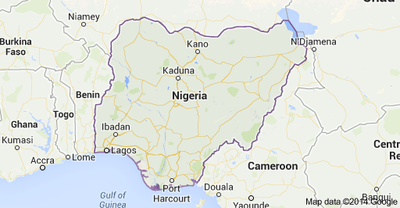UN agencies mobilize to support Government response after Benin confirms cases of Lassa fever – After the identification of four cases of Lassa fever in Benin, the Government, backed by the World Health Organization (WHO) and the United Nations Children’s Fund (UNICEF) has immediately launched a response against the epidemic, the agencies announced today.
To date, 25 suspected cases among which 12 deaths have been identified. Among the deceased, four cases of Lassa fever have been confirmed as positive. Two persons that contracted the virus are currently under treatment in quarantine isolation centres, the agencies said in a joint press release.
During a press statement held on 23th January 2016, the national authorities indicated that after the confirmation of the proven case of Lassa fever at the St. Martin Zone Hospital of Papané, in the northern district of Tchaourou, a national technical team was immediately dispatched to the spot.
Following the death of a pregnant woman on 5th January, at the same hospital, six health workers – three nurses, a female laboratory technician and two nursing auxiliaries – developed clinical symptoms of the Lassa fever. On 21th January, a male nurse, among the suspected cases, died at the Borgou Departmental Hospital of Parakou, located in the central Benin.
In light of all this, the national authorities supported by WHO and UNICEF and humanitarian partners have set up a response strategy to the epidemic that includes setting up: quarantine units in affected areas to separate suspected cases from others patients and limit the risks of exposure to people; and a tracing system to follow the contact cases in the affected zone. To date, 203 contacts cases are spread across six communes: Tchaourou, Ouéssè, Kalalé, Bembérèkè, Parakou, and Porto-Novo.
Among other actions, almost 200 community health workers are monitoring the contact cases across the country; supplies of medical stocks (Ribavirine) have been prepositioned in Cotonou and in affected areas; protection kits including personal protection equipment (PPE) for health professional staff, soap, tarpaulins, gloves, boots, glasses and masks, decontamination products and infrared thermometers, water treatment units, have been put at disposal; and the health staff of the affected areas have been trained on the use of the protection material, on the medical protocol, and in the identification and active search of suspected contact cases.
Further, the agencies noted that sensitization sessions are being organized for the population and awareness raising communication products are broadcast through local and national media including radio stations, press and TV, as a well as online platforms.
According to WHO, Lassa fever is an acute viral haemorrhagic illness caused by Lassa virus, a member of the arenavirus family of viruses. It is transmitted to humans from contacts with food or household items contaminated with rodent faeces. The disease is endemic in the rodent population in parts of West Africa. The virus can also be transmitted through by contact with an infected person via biological liquids: blood, urine, saliva, sperm, vomit, faeces. The incubation period of the virus is six to 21 days.
The first symptoms of the disease are fever, physical fatigue, nausea, vomiting, diarrhoea, headaches, abdominal pains, sore throat. Neck or facial swelling can sometimes be observed. Ribavirin is an efficient treatment to fight the Lassa fever. This drug can treat infected people if it is administered as soon as the first signs appear.
The agencies recommend the following measures to enhance prevention: from the very first signs, it is imperative to immediately go to the nearest health centre; wash hands regularly with water and soap; ensure an adequate protection of food stocks and leftovers at home; avoid the manipulation and consumption of rats; avoid contact with any person suspected or confirmed with the Lassa fever; stay away from faeces, urine, saliva, vomit and contaminated objects of a person suspected, confirmed or declared dead of the Lassa fever; do not touch the body of a person suspected of having died from the Lassa Fever, even during funerary ceremonies.
To date, an ongoing epidemic in neighbouring Nigeria has seen 175 cases, 101 deaths and 70 confirmed cases in 19 states including Niger and Oyo states, sharing a border with Benin.
Benin was hit by a Lassa fever outbreak between October 2014 and January 2015. At that time, 16 cases were registered and nine people died. Among the casualties, two were confirmed to be Lassa fever. Relevant authorities declared the end of the epidemic per international sanitary regulations which recommend the observance of two periods of 21 days during which no new case is registered.
Photo: Medical staff discuss a patient in the Lassa Fever Ward at Kenema Government Hospital, Sierra Leone. Lassa fever is a rodent-borne, acute viral haemorrhagic illness endemic to parts of West Africa. UNICEF/Tanya Bindra
Lassa fever: UN agencies mobilize support for response – Courtesy: United Nations News Centre



